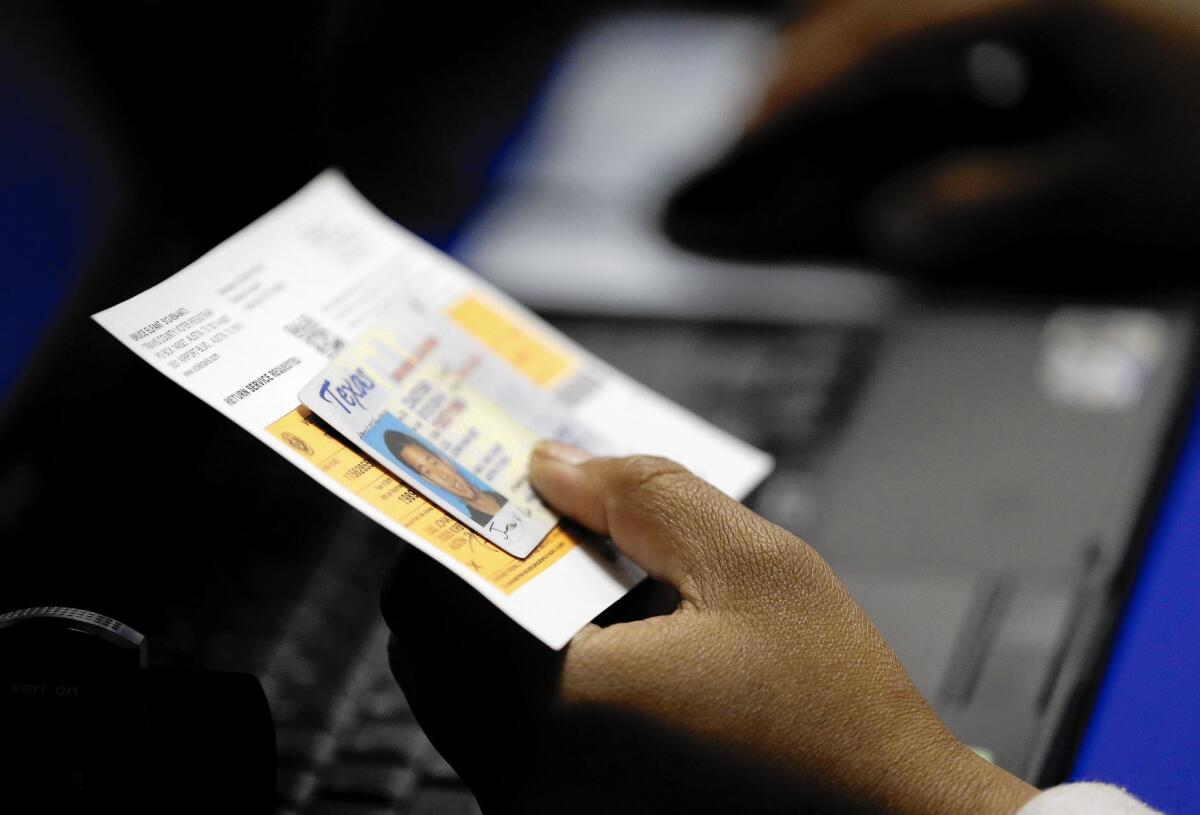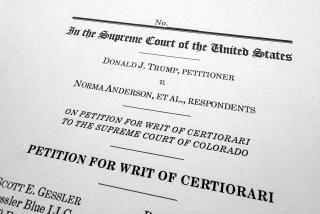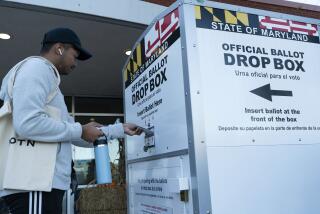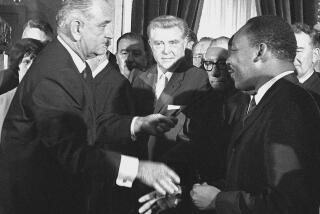Readers React: Voting rights decisions threaten the Roberts court’s legacy

To the editor: The U. S. Supreme Court has countenanced Republicans’ partisan dismantling of the Voting Rights Act, and Andrew Cohen rightly excoriates the justices’ specious reasoning. (“Shame on Texas and the U.S. Supreme Court,” Op-Ed, Oct. 22)
The high court’s refusal to halt implementation of Texas’ voter identification law, like its decision in last year’s Shelby County vs. Holder case, flouts venerable constitutional precepts. But those rulings are consistent with the court’s denial of relief sought by Al Gore in Florida’s 2000 election debacle, which in effect handed George W. Bush the presidency.
There’s little question but that the court’s conservative majority sees no problem with rigging voting procedures to disenfranchise those inclined to vote against Republican candidates. That’s quite a judicial legacy, one that history will judge harshly.
Gloria Martel, Los Angeles
..
To the editor: Cohen says the Texas voter ID law “runs afoul of constitutional norms and reasonable standards of justice” and disenfranchises “poor voters, or ill ones, or the elderly or blacks or Latinos — all likely Democratic voters,” and is “blatantly discriminatory,” but he fails to show why this is so.
I’ve practiced law for more than 30 years, taught constitutional law for 10 and even served on the board of the American Civil Liberties Union, and I fail to understand why obtaining a simple government-issued photo ID, which I and everyone must show to use for everyday tasks, is disenfranchising.
In California, even illegal immigrants can get driver’s licenses, and elderly voters can get ID cards at the DMV. Why is this so especially difficult for people in Texas? If the Democratic Party is worried, it should assist needy voters in getting IDs.
There is no constitutional norm saying that a state may not require a person voting to present a modicum of evidence that they are who they say they are.
Carl Pearlston, Torrance
Follow the Opinion section on Twitter @latimesopinion
More to Read
A cure for the common opinion
Get thought-provoking perspectives with our weekly newsletter.
You may occasionally receive promotional content from the Los Angeles Times.






